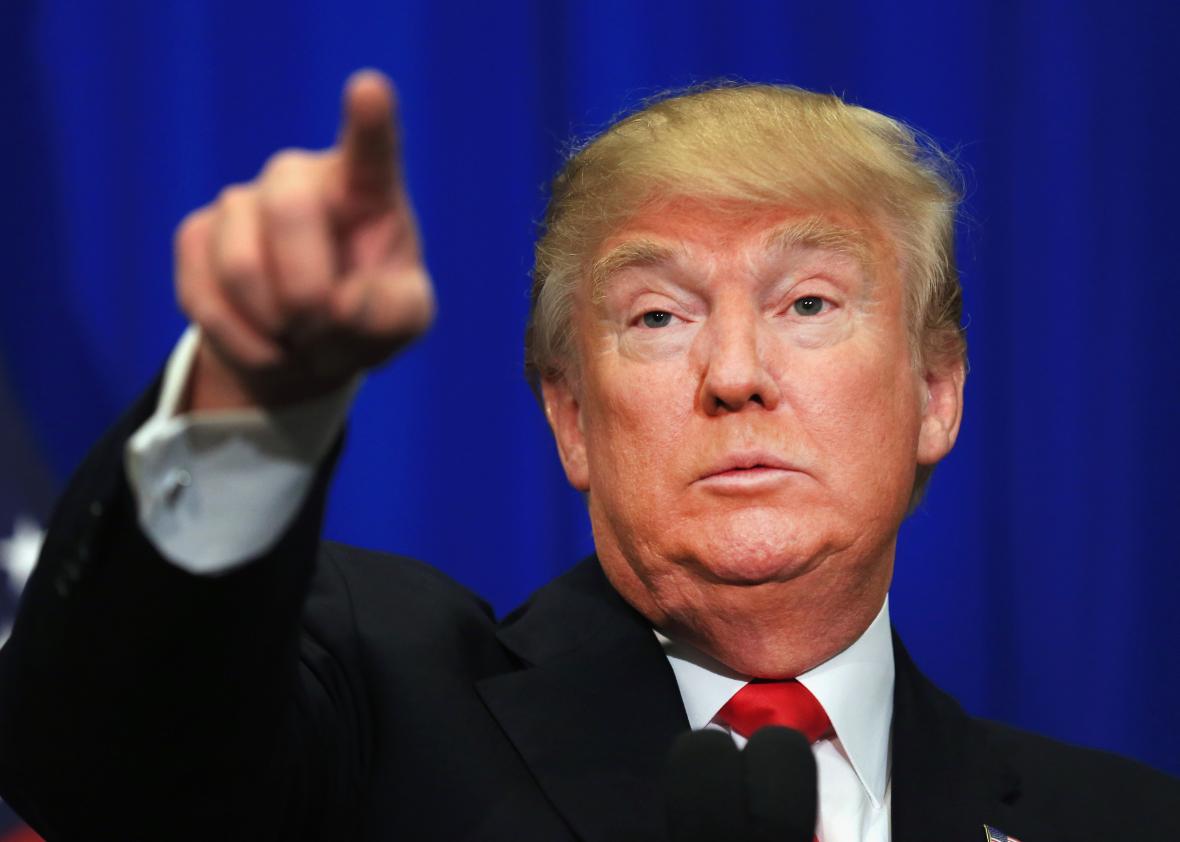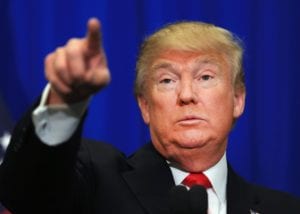
Will Donald Trump’s stance on climate change become more “presidential” when he takes office?
One of the now infamous quips of the Trump campaign has been his tendency to call all those who disagree with him a “loser”. This tick has been parodied on the famous American late night TV shows
Saturday Night Live and
Last Week Tonight. While past precedents predict that the environment will be the biggest “loser” in a Trump presidency, will a more “presidential” Trump take green issues more seriously?
Sitting in South Africa, trying to draw conclusions about our own policy as it pertains to the environment resulting from a Trump win may at first seem tenuous. But America’s future role on the world’s stage in terms of environmental responsibility has an important bearing on the future of developing countries, especially as a leader in Africa – the continent with an
emerging and fragile upwardly mobile middle class and
the lowest carbon footprint.
“You’re fired”
Global warning and the environment has been a significant pillar of the Clinton platform, Trump, on the other hand, has at times, positioned himself as both a climate change denier and a denier of being a climate change denier. The former is a stance firmly in opposition to South Africa’s take as it was espoused at COP17 five years ago, and
recently reconfirmed ahead of the COP21 Summit in Paris.
As a direct result of progress made at COP17, South Africa and Africa’s commitment to creating a circular economy and a greater number of “green” jobs has gained significant momentum. It was also at the COP17 event where Maite Nkoana-Mashabane, Minister of International Relations and Cooperation,
affirmed South Africa’s status as an environmental leader in Africa.
Another salient feature of that conference was America’s refusal to sign an agreement supporting the Green Climate Fund, which is aimed at making USD100-billion available to developing countries by 2020 to help them mitigate and adapt to the effects of climate change.
During those talks, South Africa’s main objective was to stress “adaptation”, tacitly acknowledging that the developing world suffers the worst effects of climate change, while the developed world has already reaped the benefits. Future costly impacts of climate change on developing countries include tsunamis, rising coastal water levels, droughts, floods, a lack of resilience due to historically higher poverty and less developed infrastructure, not to mention a higher number of refugees.
Given Trump’s foreign policy, it looks like the environment won’t be the only loser if he follows through with his campaign promises. If he is taken at his word, any refugees wanting to escape to America had better work on their pole vaulting skills – so they can clear that wall he’s promising to build.
If he’s taken at his word.
“Liars”
So what exactly does Trump think of global warming? And how does it compare to Hillary’s stance?
In a Tweet published on Trump’s Twitter account in December 2013, he wrote, “We should be focused on clean and beautiful air – not expensive and business closing GLOBAL WARMING – a total hoax!” This is in opposition to accepted scientific consensus.
According to
NASA, “multiple studies published in peer-reviewed scientific journals show that 97% or more of actively publishing climate scientists agree: climate-warming trends over the past century are extremely likely due to human activities.”
Clinton, on the other hand, had promised to see half a billion rooftop solar panels installed by the end of her first term.
Articles in the liberal media are saying Trump’s policy on climate change will cause the “potential suffering of millions of people … effects of this election will be felt centuries from now”. (
Vox, Nov 7, 2016)
Moreover, the
Huffington Post has called out Trump on denying his claim that climate change is a hoax during the first Presidential Debate, saying, “Rarely are there moments when you can definitively state, with zero reservation, that a presidential candidate is lying. But this was one of them.”
The same
article goes on to interview top party rep. Marsha Blackburn, who responds:
It [The Earth] is in a cooling trend. It has cooled for about the past 10 years. And the thing that is so interesting is that when you say global warming or climate change, the climate will change. So yes, in that, I agree that it does. You have to ask, “Is it cyclical?”
(Note, no, the Earth is not going through a cooling period)
Furthermore, Trump has publicly stated that he would:
- scrap the US’s Clean Power Plan and other Environmental Protection Agency initiatives;
- end all federal spending on climate change, including all clean energy R&D and all contributions to the UN climate fund, and
- do everything in his power to support fracking.
For more detailed analysis on Trump’s future staffing plans and how these would erode climate debate gains in Washington, click
here and
here.
However, worth remembering is that a keystone of Trump’s campaign has been his populist appeal. This has been achieved through his provocative statements and playing devil’s advocate on key issues, capitalising on the electorate’s mistrust of polished political game playing.
Oft times, a political candidate will tone down their campaign stances once elected.
“Yuge” impact
What makes Trump and his campaign’s attitudes to climate change so potentially damaging is the ideological clout that America holds in relation to China, especially in light of COP22 taking place in Marrakech this week. Basically, if America dumps climate change talks, China is likely to follow suit.
It is in both nations’ current economic interests to disinvest in the talks. After all, they are the world’s two biggest carbon emitters as the two largest industrialised economies. As a result, many are speculating that it is likely Trump would try to withdraw America from the global agreement to limit emissions reached in Paris last year.
If America withdraws, China is likely to feel less international pressure to be aligned with the process and could then also withdraw.
If China as a BRICS leader withdraws, a number of other developing countries are likely to follow. This could lead to a weakening of the Kyoto protocol, setting back discussions by two decades.
That would reverse the progress of every single UNFCCC COP, meaning that politicians, NGOs, civil society and the media would have wasted millions of dollars and many thousands of litres of jet fuel on a farce while planet Earth burns.
That’s a worst case scenario.
No one really knows
A fact worth remembering is that Trump is a showman. He has already surprised everyone with the US election results. Hopefully, he still has some capacity to surprise when it comes to the green economy, climate change and global warming – after all, these are key issues that have not received nearly enough media coverage in the run-up to the election thus far.
The truth is, it’s hard to pin down exactly what Donald Trump’s attitude to climate change really is. If it has the potential to improve the US economy (
and it does,) he’d very likely give the issue more serious thought as it pertains to the day-to-day running of a country (rather than as incendiary election fodder).
The only thing it’s safe to say for certain is that the developing world watches, and waits, hoping a false idea of what constitutes nationalistic economic interests doesn’t trump global environmental cooperation and concrete economic realities.

Will Donald Trump’s stance on climate change become more “presidential” when he takes office?








